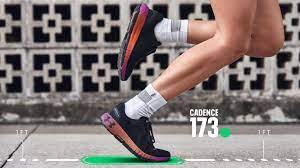Smart shoes, also referred to as connected shoes or intelligent footwear, have experienced substantial growth in recent years owing to their innovative features and functionality. These shoes seamlessly merge traditional footwear with advanced technology, offering users a plethora of advantages. The surge in demand for smart shoes can be attributed to the burgeoning interest in fitness and health tracking, as well as the increasing popularity of wearable devices.
A key factor driving the popularity of smart shoes is their capacity to monitor various fitness metrics. Equipped with built-in sensors, these shoes can track steps, distance, calories burned, and even heart rate. This data can be effortlessly synchronized with smartphones or fitness apps, enabling users to conveniently monitor their progress and establish goals. Given the growing emphasis on health and wellness, smart shoes have become indispensable accessories for fitness enthusiasts and individuals seeking to enhance their overall well-being.
Moreover, the integration of smart shoes with other intelligent devices and platforms is another contributing factor to their growth. Many smart shoes are compatible with popular fitness trackers, smartwatches, and virtual assistants, ensuring seamless connectivity and expanded functionality. For instance, users can receive real-time audio feedback on their performance or receive personalized coaching tips through their smart shoes. This integration with diverse devices and platforms has rendered smart shoes increasingly appealing to a broader audience, thereby fueling their demand and popularity.
Furthermore, technological advancements have played a pivotal role in the expansion of the smart shoe market. With the advent of sophisticated sensors, improved battery life, and sleek designs, smart shoes have become more comfortable and aesthetically pleasing. Consequently, they are sought after not only for their functionality but also for their style and fashion-forward appeal. The amalgamation of practical features and stylish designs has elevated smart shoes sales to the status of must-have accessories for tech-savvy individuals, resulting in an overall surge in demand and market growth.
Fact.MR’s Business Projections for the Smart Shoe Industry
According to the latest report from Fact.MR, the United States smart shoe market is projected to advance at a CAGR of 20.9% and is set to reach a valuation of US$ 597 million by 2033. Many market players from the country are entering into collaborations with tech giants to offer more user-friendly products in the market.

The growing adoption of advanced healthcare facilities by Americans is estimated to create lucrative opportunities for industry players.
The report also projects that the demand for step-counting shoes is expected to accelerate to drive the majority of consumers.
Smart Shoes Manufacturers & Their Future Growth
Manufacturers in the smart shoe industry have high expectations for its future growth and development. They anticipate continued expansion and technological advancements that will further enhance the functionality and appeal of smart shoes trend.
Some key points for the future of the smart shoe industry include:
1. Increased adoption and market penetration: Manufacturers expect a wider demand for smart shoes as consumers become more aware of the benefits they offer. As the technology improves and prices become more affordable, smart shoes are likely to become more accessible to a broader consumer base, leading to increased market penetration.
2. Enhanced features and capabilities: Manufacturers anticipate the introduction of more advanced features and capabilities in future iterations of smart shoes. This includes improvements in sensor accuracy, battery life, and connectivity options. They expect smart shoes to offer more precise tracking of fitness metrics, as well as additional functionalities such as advanced coaching, gesture control, and integration with augmented reality.
3. Integration with smart home and Internet of Things (IoT) devices: Manufacturers envision smart shoes being seamlessly integrated with other smart home devices and IoT platforms. This integration could enable users to receive personalized recommendations based on their activity levels, track shoe usage and maintenance, and even contribute to a connected ecosystem where smart shoes communicate with other devices for a holistic user experience.
4. Customization and personalization: Manufacturers anticipate a shift towards personalized smart shoe experiences. This could involve the ability to customize shoe settings, preferences, and even design elements to cater to individual tastes and needs. By offering a more personalized user experience, manufacturers aim to enhance customer satisfaction and loyalty.
5. Fashion-forward designs and collaborations: Manufacturers expect smart shoes to continue evolving in terms of design aesthetics. They anticipate collaborations with fashion brands and designers to create smart shoes that not only offer advanced technology but also appeal to consumers as stylish and trendy footwear options. This focus on fashion-forward designs aims to attract a wider range of consumers who value both functionality and style.
Major Global Smart Shoe Manufacturers
Some of the major Smart Shoe Manufacturers across the globe include the following businesses:
- Under Armour (UAA:NYSE)
- Digitsole
- Nike, Inc.
- PUMA SE
- Adidas Group (ADDYY)
- Salted Venture Inc.
- Sole Power, LLC
- No New Folk Studio Inc.
- Intellinium
- Powerlace Technology Inc.
- B-Shoe Ltd.
- Li Ning Company Limited
- Zhor-Tech
- 361 Degrees International Limited
Reason for Immense Popularity of Smart Shoes
Smart wearables have emerged as influential factors in consumer purchasing decisions, owing to their appealing and user-friendly features. Major manufacturers in the smart shoe industry are placing emphasis on the introduction of new shoe variants, including trail running shoes. Attributes such as design, comfort, speed, technology, versatility, and features hold significant importance for consumers when making footwear purchases.

In recent times, consumers have exhibited a growing inclination towards products that offer value-added benefits. In response, market players are actively engaged in research and development endeavors to introduce innovative smart shoe products. Renowned market players like Puma and Nike are allocating resources towards research and development activities, with a focus on creating smart shoes specifically tailored for sports such as golf, basketball, and others.
Summary
Manufacturers in the smart shoe industry are optimistic about its future. They anticipate increased adoption, enhanced features and capabilities, integration with smart home and IoT devices, customization options, and fashion-forward designs. By meeting these expectations, manufacturers aim to solidify the position of smart shoes as a prominent category within the wearable technology market.
Also Read:


